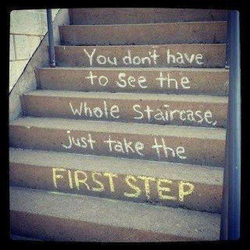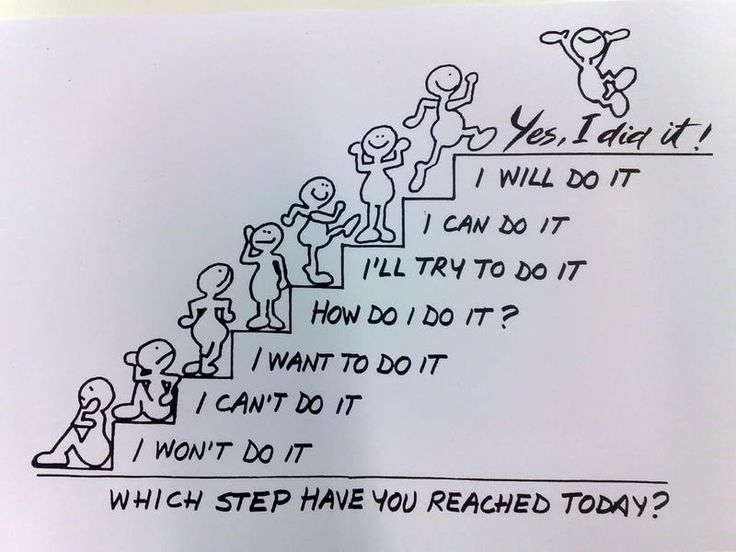 image courtesy of clipartkid.com
image courtesy of clipartkid.com I do believe that your attitude determines how productive you can be at times and definitely how much you engage and enjoy what you are doing. But I also know not everything is fun or inspirational so we must find meaning in order to motivate ourselves into action. There are plenty of things in life that must be done that definitely don't ignite any excitement or passion, but the alternative is not what I want either. So yes, I still clean my house, do laundry, mow the lawn, go to the doctor for check ups, and help others even when it's not convenient for me. But if I manage my schedule effectively, those "have to's" don't take up all of my time either, so there is still plenty of time for the "want to's."
I find that my age must be showing, because there's one thing I see missing in many people today. If it's not fun or will be difficult or inconvenient, many don't see the point. On one level I appreciate that and want learning or tasks to be meaningful and engaging. But sometimes there are things that require us to buck up and get 'er done that will never be fun and may even be disgusting! I think of nurses that clean up after ill, incontinent, or injured patients; or mom's that clean up the messes the family makes no matter what they are; or dads who carry out the dead mouse from the trap. I wish I could run my life that way sometimes, just doing what's fun and enjoyable. But on another level, I wonder if we've missed teaching our children and grandchildren the intrinsic value of work or service in terms of helping others, productivity, or how it makes us feel when a job is completed and well done. Really it boils down to helping them see and experience meaning or relevance. I clean because I don't like it if my house is dirty, so for me that is value and a motivating factor. I help others because it not only makes them happy, their happiness or relief makes me happy.
I saw this in my grandkids last weekend when a group of us from our church went to help out an area group home for students in the foster system. They didn't know what to expect, but went along because I did my best to paint a positive picture even though I'd never been there before either, but mostly they went because "grandma asked me to" (glad I still have some influence). If I can just get them started, they usually see the value and enjoy the experience. When we arrived, no one had much of an idea of what to do or how to start, but once we took the first step, everyone regardless of age or ability, found something purposeful to do. The children who lived there pitched in with those who came from other towns. You couldn't tell who was new or who was a veteran. My grandsons worked hard but had fun and they never complained. When it was over, the donated food and supplies were assembled in this wonderful fort... a fun way to deliver the most basic of needs. The people were grateful for our help and donations. When we got in the car, my oldest grandson said, "Wow, that was fun." I was so excited. Then my youngest grandson piped up and said, "That was a lot of work and all that food made me hungry!" We laughed and again, I was pleased. They couldn't believe how fast the time flew by and were glad they came. Helping others helps you too. When you find your passion it doesn't feel like work at all.
My schedule is plenty full most weeks. I print my calendar at the beginning of each month for my parents so they know where I am because they depend on me. It saves them and me a lot of questions. But just like the latest technology, as soon as it's made available to the public, there is an update or new version soon to follow. My calendar is continually in a state of flux. Retirement allows me that flexibility, but my OCD tendencies are a lot more comfortable with knowing what's next. Ultimately, I've decided that I want my calendar to be filled with "want to's" instead of "have to's" - but I know that even the "have to's" will be something I choose to do because I choose to find meaning. I want the time to fly by. I want to look forward to tasks that benefit others as well as myself. I want to have lunches with my friends, laugh at silly things, and take lots of pictures of sunsets and flowers. To get all that done, I have to pare down a few things that no longer give me the inspiration that they once did. Seeking new challenges, seeing new sights, and sprinkling in new things with familiar pastimes, are all on my bucket list of doing the things I love.
I think I'm finally starting to get the hang of this retirement thing. I don't punch a clock, but I work at things I want to do and enjoy finding ways to stay relevant and be of service to others. Sure I still feel the pressure of some "have to's" but I know that stepping up is important too. We never want to retire from feeling needed or valued. Those are the reasons all of us get up each day. My goal is to be sufficiently challenged, find things to do that ignite my passion, and look for the silver lining every day... so maybe I'm not slowing down at all... just focusing on what matters. In reality, there is so much to do...and so little time! What will you focus on? Join me on this journey as I continue to seek meaning that leads to finding my joy!











 RSS Feed
RSS Feed